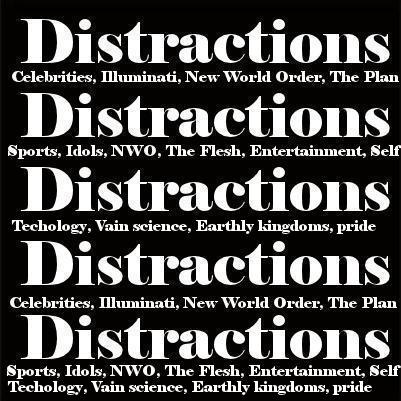
--Colossians 2:8
"As Jesus and his disciples were on their way, he came to a village where a woman named Martha opened her home to him. She had a sister called Mary, who sat at the Lord’s feet listening to what he said. But Martha was distracted by all the preparations that had to be made. She came to him and asked, “Lord, don’t you care that my sister has left me to do the work by myself? Tell her to help me!”
“Martha, Martha,” the Lord answered, “you are worried and upset about many things, but few things are needed—or indeed only one.[a] Mary has chosen what is better, and it will not be taken away from her.”
Let’s start with the definition of distraction. Distraction is “the process of interrupting attention” and “a stimulus or task that draws attention away from the task of primary interest.”1 In other words, distractions draw us away from what we want to do, whether it’s to accomplish a task at home or work, enjoy time with a loved one, or do something for ourselves.
If distraction becomes a habit, we are unable to sustain the focus required for creativity in our professional and personal lives. Worse, if we are constantly pulled away from friends and family by distractions, we miss out on cultivating the relationships we need for our psychological well-being.
In short, a distraction is any action that pulls us away from what we really want to do. Here is a short list of a few distractions that we bite on:
- Looking at notifications that pop up on your phone—even during conversations with family, friends, or colleagues
- Interrupting focused work to check email
- Chatting with coworkers who pop by your desk when you intended to do focused work
- Scrolling through your social media feeds when you planned to read a book
Distractions aren’t necessarily your fault, but managing them is your responsibility.
- Master internal triggers. (Hungry, cold, bored, lonely...)
- Make time for traction. (Traction is any action that moves us towards what we really want.
- Hack back external triggers. (Turn off TV, cell phones, close the office door...)
- Prevent distraction with pacts. (Refuse to answer calls, make appointments with yourself and keep them. Stay away from co-workers or family that you know are time stealers until you are ready to deal with them and can give them your full attention.) Rule of thumb, "When present-be present."



 RSS Feed
RSS Feed